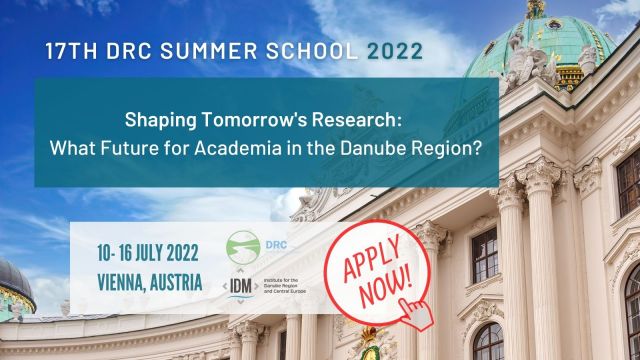
Source: IDM
(Press release of the IDM)
6-10 July 2022, Vienna
General Topics of the Summer School:
Youth in academia – passive listeners or drivers for change?
The role of students, graduates and early-stage researchers in academia is significantly shaped by the given institutional structures and processes at universities and research institutions. In the Danube Region, rigid hierarchy-based approach and institutional setting are predominantly established, thus effecting professional development of students as well as their cultural approach to – and their role in – academia. By challenging the academic status quo, university students and young researchers can prove to be the driving force for a cultural shift in academia stemming from a more participative and inclusive learning formats and university procedures.
University autonomy and academic freedom – Regional perspective
Particularly in young democratic systems of Central, Eastern and Southeastern European countries, the university autonomy and academic freedom become a victim to various socio-political pressures. While introducing political reforms and cultivating informal structures, the limitation, undermining or even destruction of autonomy of universities and research institutes happens to be a reality. This development results in decreasing of transparency and accountability of higher education in general.
Education for a brighter future – role of research in policy-making
In addition to education and research, higher education also plays a crucial role in transferring the latest, evidence-based knowledge and technology to the public and policy-makers. Facing the ever-increasing general distrust in science and the changing political-social climate, the resilience of universities and academia is coming to the test. Universities need to rethink the ways of enhancing the role of science in the decision-making processes both on national and European levels.
Learning and mobility in the shadow of the war – considerations and challenges
According to the Ministry of Education and Science of Ukraine, more than 1600 educational institutions were affected by the war in Ukraine. Almost 50 pre-higher and higher education buildings and around 58 scientific facilities have been significantly damaged, amounting to nearly 15% of the research infrastructure of higher education and research institutions in Ukraine. The conflict in Ukraine serves as an example of the broader impact of the war on local universities and institutions and sheds light on the interplay between conflict, education, mobility, asylum and migration.